My father is Libyan, my mother English, and I grew up in Britain. I guess I grew up half Libyan but never really knew what that meant. The country was always the imaginary place my dad spoke of only in hushed tones, this surreal beautiful desert by the sea, full of crazy characters and tales. So when the revolution began and I found myself at protests rubbing shoulders with other young Libyans, I thought it was time to go and discover both my heritage and my family.
The first thing I noticed on arriving in Libya was the energy of the youth and activists. It was – is – simply amazing. I wanted to help, I thought I could help, this new country, a country I knew like an estranged relative. I felt as if a natural force was pulling me towards Libya, even in this time of turbulence. I wanted to open up a visual dialogue, make an impact using visuals as my tool, to show a different face, many faces, of this country of which the world knows so little.
I won’t lie. It’s difficult to balance my quest to capture life in post-Gadhafi Libya with the security situation. There is a sense of paranoia left over from the regime that makes people suspicious and fearful of the camera. But that’s exactly why it is so important to work on relationships with characters to gain their trust, especially if one is making a film. The country is still in transition, we are going through a difficult stage of development. Sometimes it’s paralysing. It is not easy to move around. But I think this is natural: there is always chaos after a revolution.
After the fall of the regime there was a sense that people could suddenly breathe – they could talk, they could have an opinion. ‘Freedom’ became a wild scream. A country once silenced is now a place where everyone is talking at once, and talking very loudly. The security situation has deteriorated recently. The lack of a viable state or constitution, the increase in crime, have made the transitional phase even more acute. Everyday life has become a chore; and the lack of running water, electricity and fuel in a rich country like Libya has disenchanted many people. But this does not mean they are not hopeful for the future. It’s just a wake-up call, beckoning us to work harder to create a future we want for our children.
My cousin was brought up in Libya. She too had a Libyan father, though he took her away from her English mother when we were nine years old. We had very different lives and whenever we meet I am reminded that this could have been my reality. But different doesn’t mean that one is better than the other. She is married with three children, living in Misrata, and is very happy. All I know is that if I had grown up under the regime, I would not have been able to pursue a career as a film and visual artist. I would not have gone to Central Saint Martin’s College of Art, where I gained a Masters in Screen, nor would I have been able to work in the theatre. I would not have had the creative freedom that growing up in the UK gave me. Being both British and Libyan allows me to see the country from the inside, but with the curiosity of someone from outside, always seeking to adjust to this duality.
Libyan men have great respect for women in their family and in the home, but on the street this respect evaporates. Some can be quite disrespectful. And when a camera is involved the situation can get a bit tense. Some men react strongly when a woman is taking their picture. I don’t want to embarrass anyone but sometimes the men feel objectified, which is a new experience for them. When I am filming I spend a long time building a relationship with characters, so this generally doesn’t happen. But when I am taking pictures on the streets it’s interesting to play around with these gender roles, subverting the theory of the ‘male gaze’. I find it fascinating to see how different people respond to the lens. The camera is never neutral, it always alters the reality, and this says something of each individual situation, whether it involves men or women.
My work is not explicitly political or religious, but these elements often resonate in the background of what I do. Our everyday reality is inescapably political. We are seeing a rise in literalist understandings of Islam sweeping the Middle East and the Maghreb in the wake of the ‘Arab Spring’. The literalists are a very small minority and do not represent the masses, but it’s these literalists we often see in the Western media when we talk of the region and Islam. I want to show an alternative reality. Of course, the fundamentalists exist, and one cannot ignore them, but I am worried by the drift into extremism away from the spiritual, though that is not my focus. My interest is in non-elitist forms of visual language that can spark change and help navigate towards universal human stories that challenge media stereotypes of the ‘Other’. And my hope is that Libya will prosper soon; and become the bride of the Mediterranean once again.
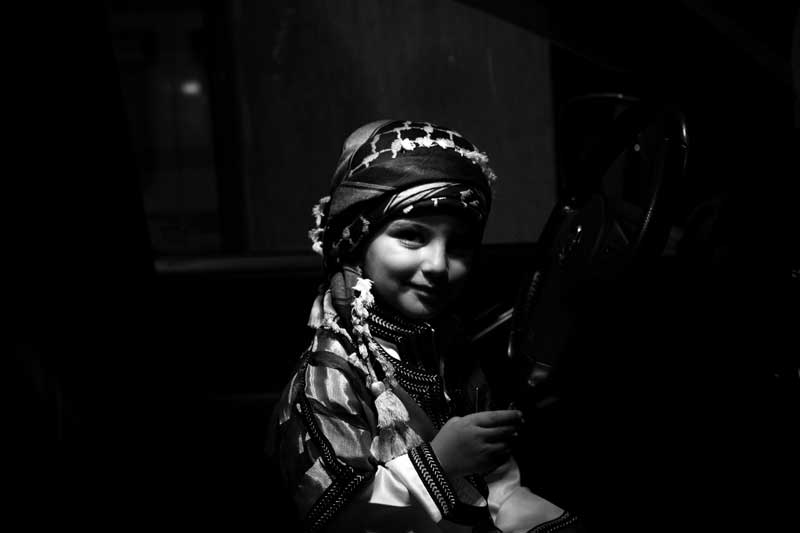
My cousin, in traditional dress, about to go on the customary trip to see family and friends for the Eid festival.
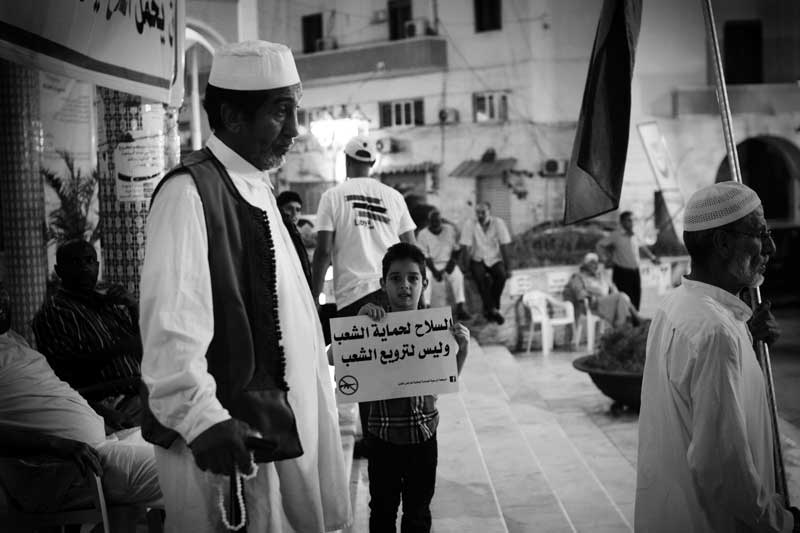
‘Weapons are supposed to protect the people not scare them’ reads the placard of a young boy at a protest in Tripoli.
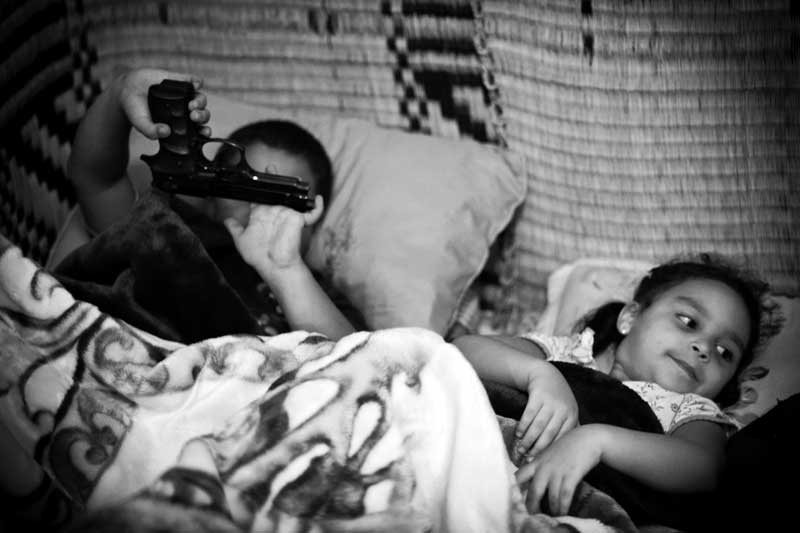
Every home has a firearm in Libya, and many children who witnessed the revolution are growing up to see violence and gun culture as the norm.
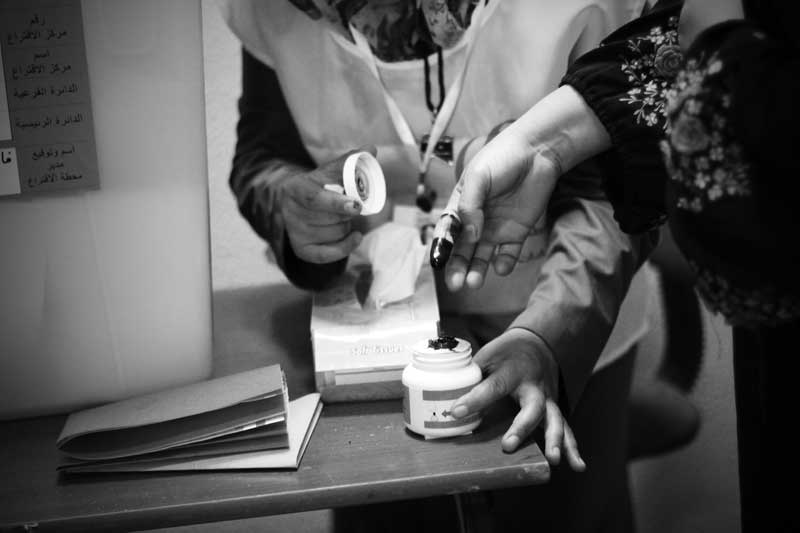
Voting in the first national elections, July 2012, a very special day.
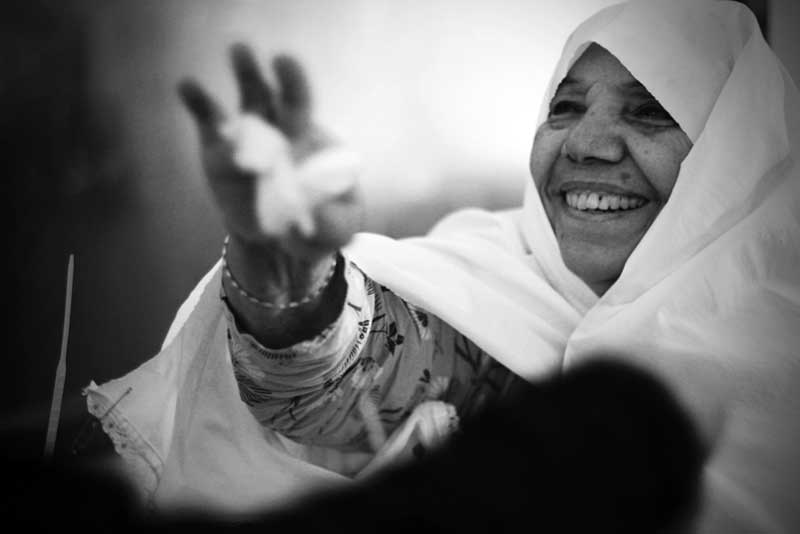
My grandma’s joy at voting.
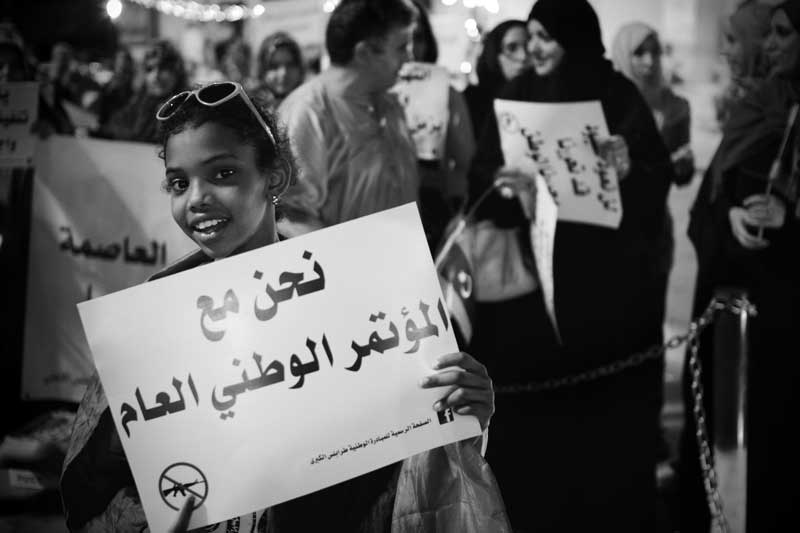
At a demonstration against power cuts.
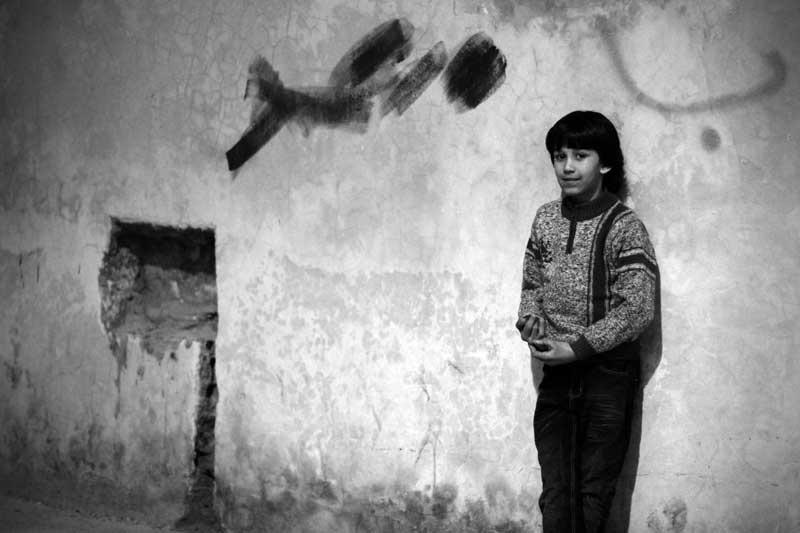
The words Baba Muamer, referring to Gadhafi as the patriarchal leader of the Libyan people, have been erased from a street wall in Tripoli.